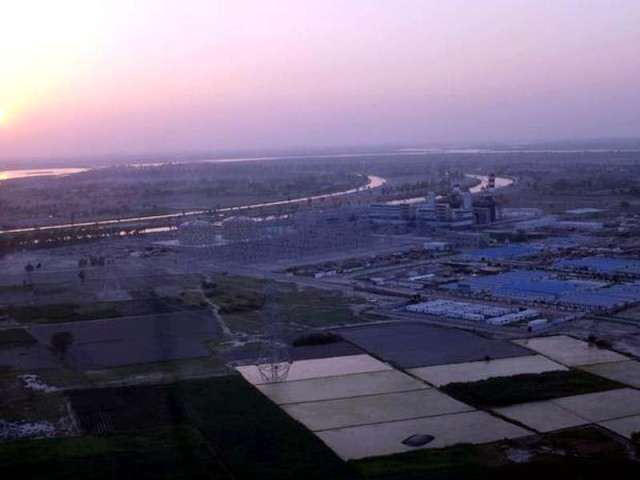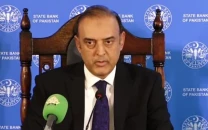Privatisation faces further delay
Govt unable to resolve issues of tax exemption, debt financing over past two years

The privatisation transaction worth over a billion dollars of two liquefied natural gas (LNG)-fired power plants has been delayed further as the government has not been able to resolve issues of income tax exemption and debt financing over the past two years.
Various government departments have been holding a series of meetings to resolve the issues raised by the financial advisers and prospective bidders for taking the transaction to the bidding stage. But progress remained painstakingly slow, said officials in the Ministry of Finance and Ministry of Privatisation.
National Power Parks Management Company Limited (NPPMCL), which owns 1,230-megawatt Haveli Bahadur Shah and 1,223MW Balloki power plants, is the only notable entity on the government’s privatisation list.
The government expects minimum proceeds of Rs300 billion or around $1.5 billion from the sale of these two plants. It had initially planned to sell the company by June 2019.
Sources said that the outstanding issues may take a longer time as some decisions would require legislative changes in the Income Tax Ordinance. But Muhammad Jamil, Director General Power of the Ministry of Privatisation, hoped that major milestones would be achieved by June this year and bidding may take place by September. By the end of next month, the ministry would try to sort out all the major issues and after that would re-engage the prospective bidders, said Jamil while talking to The Express Tribune.
Jamil said the government expected the financial close to take place by the second or third quarter of next fiscal year 2021-22.
Privatisation proceeds are also critical for the government’s overall fiscal framework agreed with the International Monetary Fund (IMF) for current fiscal year 2020-21, particularly when the Federal Board of Revenue’s (FBR) tax collection is expected to remain short of the target for the third consecutive year.
Sources said that the key issue was whether the new buyer of NPPMCL would be entitled to income tax exemption like the other private sector power plant owners and whether the prospective buyer would have to pay Rs8.5 billion to the FBR after the change of debt-to-equity ratio of the company. The FBR has assured to resolve taxation issues within weeks, said Jamil.
The other problem was that the cost of debt that the buyer would take to acquire the company is expected to be higher than permitted by the power sector regulator to be charged from the consumers, said the sources. These issues had also been placed before the Cabinet Committee on Privatisation (CCOP) on January 4 but it referred the matter back to another committee.
The National Electric Power Regulatory Authority (Nepra) has allowed local debt financing at Karachi Interbank Offered Rate (Kibor) plus 1.8% in the tariff determination.
Under Nepra guidelines, the private sector can acquire debt up to Kibor plus 3.5% from local banks and at London Inter-Bank Offered Rate (Libor) plus 4.5% from foreign banks. This cost is then built into electricity prices. However, the actual cost of NPPMCL power plants was Kibor plus 1.8% and the fresh debt financing has to be within this limit.
“Nepra indicated that bidders may arrange foreign debt financing within the limit of Kibor plus 1.8%, and any currency exchange rate risk shall be borne by the bidders,” the privatisation ministry informed the CCOP last week.
Sources said that the bidders may either opt for local debt financing within the prescribed limits or may avail foreign debt financing, bearing foreign exchange risk on their own and in that event the bidders will make adjustment in their valuation.
They said that another option was that NPPMCL may replace the debt of the government by borrowing from local and international banks before privatisation. Nepra had also approved the debt-to-equity ratio of 70:30 but the actual equity of the company is far higher than this, which entitled NPPMCL to claim Rs8.5 billion in tax credit.
In the past, the banks have shown reluctance to provide loans to the prospective buyers at the approved rates meant for tariff determination.
Income tax issue
Under Section 132 of the Income Tax Ordinance, all IPPs are income tax exempted while NPPMCL is not entitled to income tax exemption.
As per transaction structure, the company may be split into two separate companies. Section 132 does not apply to the IPPs which are formed after split.
Sources said that Finance Minister Dr Abdul Hafeez Shaikh had asked the FBR to also exempt the prospective buyer from income tax aimed at giving him equal treatment. But this would require endorsement of the IMF and amendments to the Income Tax Ordinance. Another critical issue was that NPPMCL was availing tax credit on the basis of its capital structure, which will now be changed as per tariff determination.
On the change of capital structure that is debt-to-equity ratio of 70:30, the credit will no more be availed by NPPMCL and tax credit of Rs8.5 billion that is already availed has to be deposited by NPPMCL, according to the privatisation ministry.
“The (NPPMCL) company has liquidity problems and in such case, the government or the CPPA-G will have to arrange the amount for payment of Rs8.5 billion tax liability,” the privatisation ministry informed the CCOP last week.
In September last year, the government had decided to change the date of 66% LNG take-or-pay commitment from 2025 to 2022. However, the subsequent amendments to the documents have not yet been made. Stakeholders have reached an understanding that the new buyer would indicate an annual production plan and binding monthly production plan at least 75 days before the start of each month and Sui Northern Gas Pipelines (SNGPL) to accept firm orders picked by NPPMCL 75 days in advance for a particular month.
But the power purchase agreement, gas supply agreement and implementation agreement have not been amended yet due to a delay in submitting a summary for approval of the cabinet committee on energy.
Jamil said that the financial advisers had sent the revised draft documents to the Ministry of Energy for security approval by the competent forums.
Published in The Express Tribune, January 13th, 2021.
Like Business on Facebook, follow @TribuneBiz on Twitter to stay informed and join in the conversation.



















COMMENTS
Comments are moderated and generally will be posted if they are on-topic and not abusive.
For more information, please see our Comments FAQ